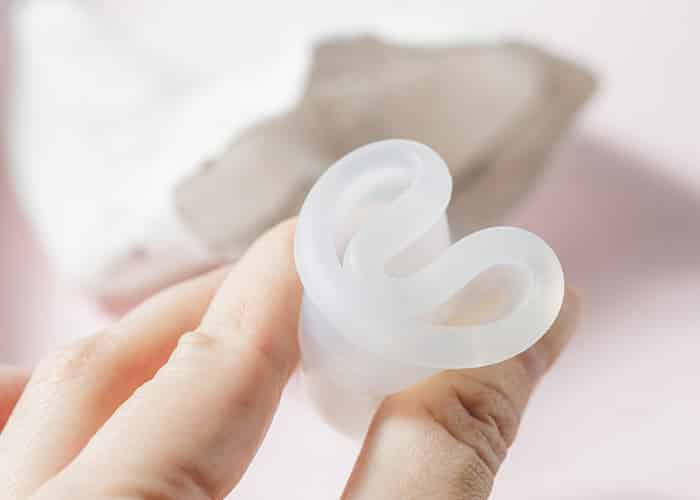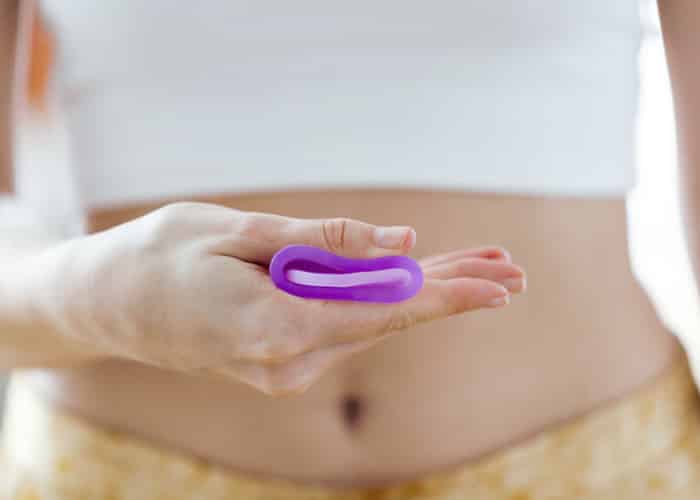One of the most popular contraceptives for women around the world is birth control pills. A revolutionary, effective method for preventing pregnancies, it gave women the power to make decisions regarding their sexuality since the 60s.
But beyond preventing pregnancy, the birth control pill is a hormonal method with many other uses. It is prescribed by gynecologists to treat hormonal disorders, menstrual cramps (dysmenorrhea), and other abnormalities in the endocrine system.
Here, we will show you how the “pill” works, what effects it has on your body, how to stop taking it, and the most common myths about this oral contraceptive.
How do birth control pills work and what are they made of?
Birth control pills are a method that involves synthetic hormones (artificially manufactured), which simulate estrogen and progesterone function. These natural female hormones are responsible for your menstrual cycle.
Normally, estrogen rises during the first days of the menstrual cycle to produce the ovule that seeks fertilization during the days following your period. Then, a rise in progesterone creates the ideal environment to nourish the embryo; when fertilization does not occur, these hormones decrease to give way to menstruation.
The function of birth control pills is to block the formation of the ovule, increase the thickness of the cervical mucus to prevent sperm from passing through, and make the uterine lining so thin that implantation cannot exist.
These pills are taken over a period of 21 consecutive days and 7 days off. At the end of this seventh day, menstruation subsides and another 21-day cycle should begin. Some brands that combine contraceptives contain 28 pills to be taken consecutively.
The effectiveness of the pill in preventing pregnancies lies in taking it every day without fail. When the steps are not followed exactly, its efficiency declines and there is a risk of pregnancy.
Best known components
- Ethinyl estradiol
- Cyproterone
- Drospirenone
- Norethindrone
- Norgestimate
- Levonorgestrel
If I’m already taking the birth control pill, how can I stop taking it?
There are several reasons why you might want to stop taking the birth control pill. What if I forget to take several pills? Or if I want to get pregnant, when will I be fertile again?
There are factors that you should consider before leaving the pill. It won’t hurt you to stop using any hormonal methods, but if you can, check for any other symptoms.
- The most advisable thing to do is to stop using this contraceptive method once the pack has been finished. This way, you finish the complete cycle to which the pills are assigned and start the next one without taking any. By the way, it’s natural that when beginning the treatment, you have spotting or intermenstrual bleeding.
- If you forget to take one or more pills, you lost the pack, or you notice any secondary effects that require stop in the middle of the cycle, the next step is to wait for your period. Even if you’re on your 14th day of the cycle, for example, and stop the pills, you may get your period in the next two days. Don’t be alarmed. It’s completely natural and is called withdrawal bleeding. However, this could alter your cycle for at least a few months, and while normal, it’s still advisable that you try to never to forget a pill.
- You leave the pill and start to become fertile. The hormones have no retroactive effects on your body, which means that by forgetting or leaving them completely, you can get pregnant if you don’t use another method of protection. Later, we’ll clarify this point by discussing myths about oral contraceptive methods.
- It is likely that if you previously suffered from Premenstrual Syndrome (PMS), you will again have these symptoms that include belly pain, cramping, mood swings, acne, and fluid retention.
- If you previously had hormonal disorders, dysmenorrhea, or did not have a period, all these issues will likely come back to your life. There are natural remedies that will help you relieve menstrual pains.
Myths and truths about birth control pills
- I WILL GAIN WEIGHT BY TAKING THE PILL.
Negative.
This is one of the most popular myths. It is neither verified nor is there conclusive evidence that contraceptive pills affect your weight on a large scale. The variations can be tiny and are related to the retention of liquids. But could it lower your weight? Also, no– although we should clarify that the increase in muscle mass is smaller in women who take contraceptive tablets than those who don’t.
2. It can only be taken by adult women or those with an active sexual life.
False.
Hormonal methods, as we stated earlier, have many other uses. It is sometimes prescribed by gynecologists and endocrinologists to treat hormonal disorders even for women at an early age. It is also recommended in cases of Polycystic Ovarian Syndrome, secondary dysmenorrhea, etc.
3. You need to wait “so many” months to get pregnant.
Again, negative.
You could get pregnant even if you skip pills during treatment.
Besides, it’s a myth that by years of taking oral contraceptives decreases your fertility. As we’ve stated earlier, the pill has no cumulative or retroactive effect on your body. If you’re having difficulty getting pregnant, you can rule out this option, and we recommend you consult a fertility doctor.
4. It’s one of the most effective methods.
True, true, true.
The contraceptive pill is one of the most effective pregnancy prevention methods that exist, as long as they are taken properly.
It’s important to note that it is NOT a protective mechanism against sexually transmitted diseases.
5. Over time, they increase the probability of cancer.
False. Studies reveal that the people who have taken oral contraceptive methods are less prone to suffer from ovarian cancer. There is no evidence to prove they are carcinogenic.
6. If I forget to take one, I can just take two the next time.
False. What you can do is that if you happen to forget one of the tablets, you can take it before 36 hours from the previous one without a problem. Nevertheless, taking a double dose will not increase the contraceptive effect.
Additionally, if this happens on several occasions, it’s recommended to use a complementary contraceptive method since the pill would lose its effectiveness.
Conclusion
You should not prescribe yourself any birth control pill. Your doctor will know what is best for your body and how it works.
Some side effects do arise from the use of oral contraceptives, so it’s important that if you suffer from cardiac, circulatory problems, or even if you are over 35 years of age, see a doctor before taking any of these hormonal methods.







